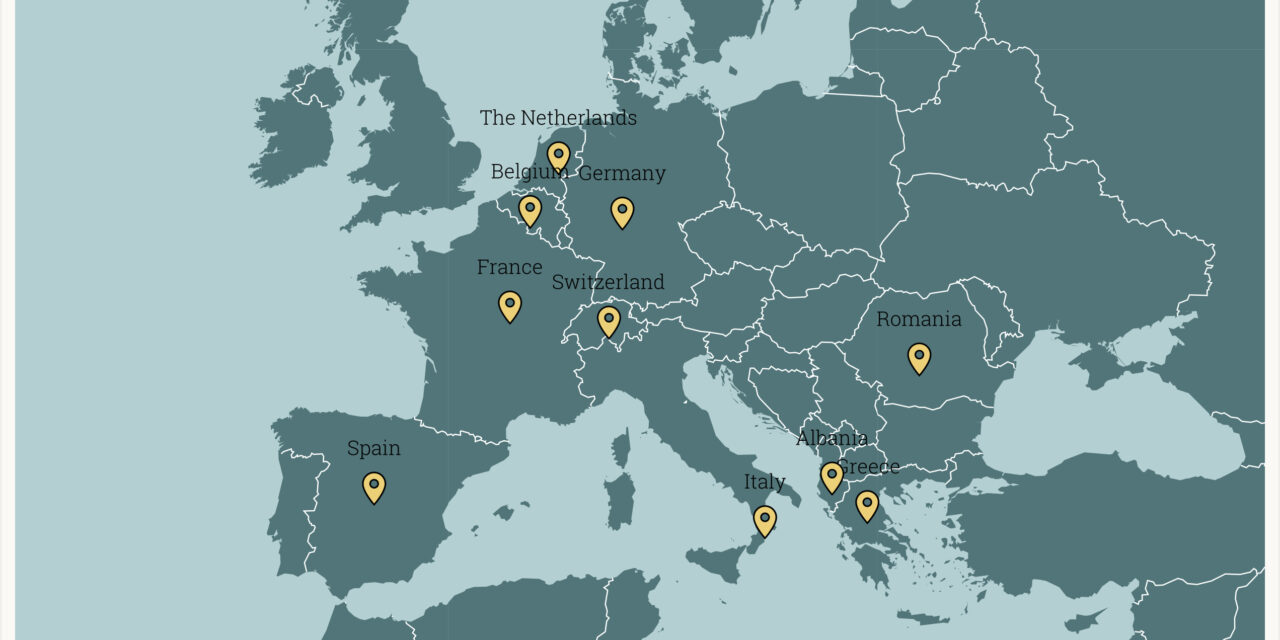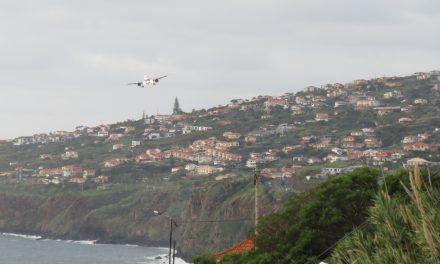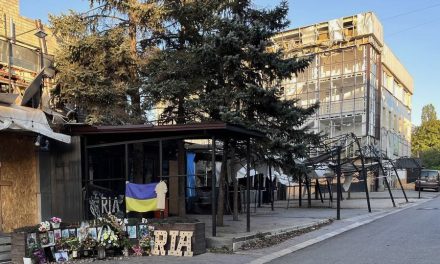A maxi-trial with over 350 defendants kicked off in Italy last week. It is the country’s biggest mob trial in thirty years. The suspects are accused of some serious crimes: murder, attempted murder, being a member of a mafia organization, extortion, drug trafficking and abuse of power. They are all on trial at the same time, because they were all, in some way, connected to the ‘Ndrangheta. This notorious mafia organization from the Italian province of Calabria has grown to be the largest in Italy. But its tentacles do not only occupy Italy, they also extend to other countries like the United States, Canada, Colombia, Australia and many countries in Europe. What is this criminal organization and what illegal practices do they engage in?
The ‘Ndrangheta in Italy
In the toe of Italy’s boot lies the province of Calabria. It is a region with high mountains, kilometres of beautiful beaches and old-fashioned villages. But while life in these villages may seem idyllic at first glance, the province has been taken over by the ‘Ndrangheta (also called Onorata Società). For many years this mafia organization was not very well-known to many people. The focus was mainly on the Sicilian Mafia, the Cosa Nostra. Meanwhile, the ‘Ndrangheta could quietly grow into the largest mafia organization in Italy with an extremely well-developed structure. It is based on blood ties, which makes it very reliable. Their ‘omertà’ code demands silence and extreme loyalty. Members who talk are killed by their father or brother according to the rules.
“One of the main things that we have seen in the past years when dealing with the Calabrian mafia rather than the other mafias is that there is a so-called level of tolerability whereby politicians, as well as anyone else in certain communities do live together with mafia power,” says Dr Anna Sergi. She is senior lecturer in criminology at the University of Essex and an expert on the Calabrian mafia. “Mafia power is a form of power that is nourished by political power,” she continues. ”‘Ndrangheta members seek political patronage, either directly by electing their own people into political positions or indirectly by making them offers such as vote exchange, or even through intimidation or corruption in different ways.” The mafia smoothly melts together with society. In some cases, it is not always visible what mafias do in terms of criminal activities. “What is visible most of the time is their attachment to territories and certain traditional rulings of the territories, so it becomes really entangled with administrative and political power. And obviously there is a last thing to say, which is that it very much depends on how large or how big the city or the towns are. In smaller places it might be much easier for the mafia to embed into the political evolution of the place, because it’s a much smaller pond. In bigger cities, controls are higher and obviously it becomes a lot more difficult.”
The expansion to Europe
Despite this statement, the members of the ‘Ndrangheta have expanded their territory over the years and currently are scattered all over the world. As described in a Europol report: “Colonisation is a term frequently used to illustrate the expansion of the ‘Ndrangheta outside its native region of Calabria. This mafia organisation implants perfect copies of its essential structures in territories not under its control, pursuing a long-term strategy of progressive infiltration in new economic and social environments.” There have been a number of events outside of Italy confirming their presence, including the massacre outside a pizzeria in the German town of Duisburg in 2007. Six Italians celebrated one of the men’s eighteenth birthday in a pizzeria and were found riddled with bullets early next morning. It was a long-running conflict between two clans.
According to Dr Sergi, mafia power is a lot more subtle and camouflaged than organised crime. “It is very difficult to track relationships and most importantly to assign criminal liability,” she says. Nevertheless, it succeeded on a large scale for the first time in 2018 when judiciary and police forces in the Netherlands, Italy, Germany and Belgium coordinated joint action against the ‘Ndrangheta, under coordinating institutions such as Europol and Eurojust, code-named ‘Pollino’. In these countries, and in Suriname, a total of ninety people was arrested and three million euros in cash, 140 kilos of ecstasy pills and three to four thousand kilos of cocaine were seized. Europol at the time: “This is the biggest operation of its kind to date in Europe. Several hundred police including special intervention units were engaged in the action, together with prosecutors and investigative officers.”
The chameleon
The activities of the ‘Ndrangheta outside Italy are different than in the country itself. In Calabria clans are intertwined with society, but outside their country of origin, this is different. “There is quite a growing understanding of mafia threats around Europe, but one thing that is important is that we do not have the same amount, and same type of mafia’s everywhere. When you say that the ‘Ndrangheta is present in many different countries, it does not say it is present in the same way. The ‘Ndrangheta has many different clans, who do many different things and more importantly, they are very differently imbedded and their organisation is very different when they move abroad,” Dr Sergi says. However, patterns can be seen in a number of countries. In a report by Italian criminologists, figures from the Italian Anti-Mafia Investigation Directorate (DIA) are arranged showing where mafias are located and what activities they carry out. It is important to note that the different mafias; the Camorra, Cosa nostra, Apulian mafias and the ‘Ndrangheta all behave differently. The Calabrian mafia is engaged in different activities like drug trafficking and money laundering: investments in the legitimate economy or reinvestments of the proceeds of crime. Germany is clearly the country with the most activities, not always with specification about its stable nature, but there is a structured mafia presence. According to the report, rogatory letters confirmed that ‘Ndrangheta locali are present in Rielasingen, Ravensburg and Engen. Switzerland is mainly used for money laundering and according to the report, Spain, the Netherlands and Belgium are mainly used for drugs shipments from/through/to a country. An explanation for this is the major ports that are located in these three countries. They are the ‘gateway to Europe’. Cocaine from Latin America, among other things, enters Europe illegally this way.
“It is simplified to say that the ‘Ndrangheta is in, for example, the Netherlands. Indeed, some members are there and some activities are in the Netherlands, but that does not specifically mean that their links with Calabrian counterparts or their links across states have actually been proven in any way,” says Dr Sergi. There are some projects active to fight mafia power in Europe including an important project which started in 2018 and is led by Europol. It is called ‘The Operational Network (@ON)’. “This project brings together all important police forces from the Europol member states and is working towards concerted action across Europe and against organized crime. The project is led by Italy in many cases, to provide European partners with support on the ground into the fight against mafias,” she says.
All in all, the ‘Ndrangheta remains a difficult subject to discuss. “The main challenge in the fight against Italian mafias abroad remains the difficulty to differentiate mafias from other organized crime networks, as groups with specific norms, traditions, rituals and sets of behaviors that criminal law in many countries struggle to target in a single offense,” Dr Sergi says.
What she wants to make clear is that what Italy experiences every day is not what the rest of Europe is experiencing. “For Europe it is a matter of coordinating activities across states,” she says.




